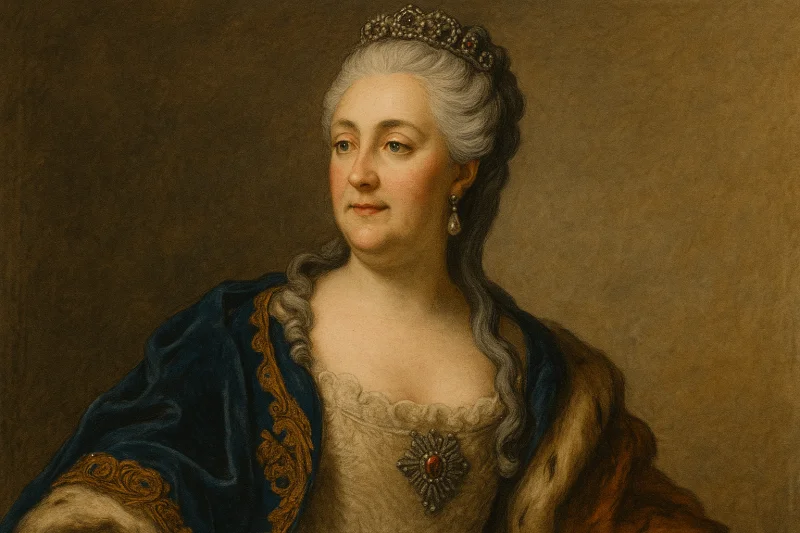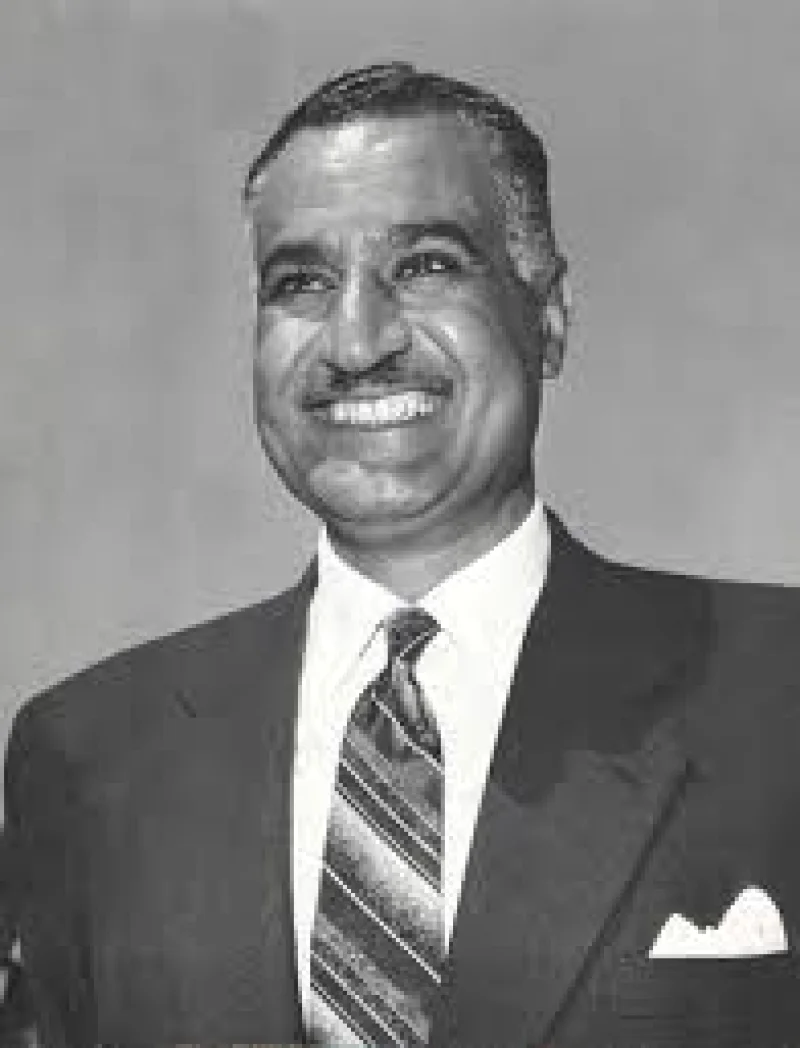Short Summary
Catherine the Great, Empress of Russia from 1762 to 1796, is renowned for her role in revitalizing Russia, making it a major European power. Her reign is marked by vast territorial expansions, internal reforms, and the flourishing of the arts and education. As one of history's most influential female rulers, she is celebrated for her patronage of the Enlightenment and her efforts to modernize Russia.
Early Life & Education
Born as Sophie Friederike Auguste von Anhalt-Zerbst in 1729 in Stettin, Prussia (now Szczecin, Poland), she was the daughter of a minor German prince. Her upbringing was marked by a modest but well-rounded education, focusing on languages, literature, and philosophy, which laid the foundation for her later intellectual pursuits. At age 14, she traveled to Russia to marry the future Emperor Peter III, converting to Orthodoxy and taking the name Catherine. Her early experiences and education greatly influenced her enlightened views and governance style.
Career Highlights
Catherine ascended to the Russian throne in 1762, following a coup that overthrew her husband, Peter III. Her reign was characterized by significant internal reforms, including efforts to modernize agriculture, industry, and governance. She expanded Russian territory through successful military campaigns and diplomatic maneuvers, notably securing access to the Black Sea. Catherine was also a notable patron of the arts, fostering a cultural renaissance in Russia, and corresponded with leading Enlightenment thinkers, integrating their ideas into her policies.
Major Achievements
- Expanded Russian territory by over 200,000 square miles, enhancing its strategic and economic stature.
- Established the Smolny Institute, the first state-funded higher education institution for women in Europe.
- Reformed the Russian legal system with the Nakaz, which aimed to modernize and humanize Russian law.
- Promoted the arts and education, founding the Hermitage Museum and supporting cultural growth.
Famous Quotes
- "I am one of the people who love the why of things."
- "Power without a nation's confidence is nothing."
Interesting Facts
- She corresponded with Enlightenment thinkers like Voltaire and Diderot.
- Catherine was a proponent of inoculation, undergoing smallpox vaccination herself.
- Her reign saw the Pugachev Rebellion, a major peasant uprising.
- She is often credited with introducing the potato to Russia.
Legacy / Influence
Catherine the Great left a profound impact on Russia and the world, transforming her nation into a leading European power. Her efforts in education, cultural patronage, and legal reform laid the groundwork for modernizing Russia. Her reign is remembered as a golden era of expansion and enlightenment, influencing subsequent generations of leaders and thinkers.
FAQ
Q: Why is Catherine the Great famous?
A: She is famous for transforming Russia into a major European power through territorial expansion, internal reforms, and cultural patronage.
Q: How did Catherine the Great influence education in Russia?
A: She established the Smolny Institute, promoting higher education for women, and supported the development of educational institutions.
Q: What were some of Catherine's contributions to Russian culture?
A: She founded the Hermitage Museum, supported the arts, and fostered cultural growth by integrating Enlightenment ideas into society.










